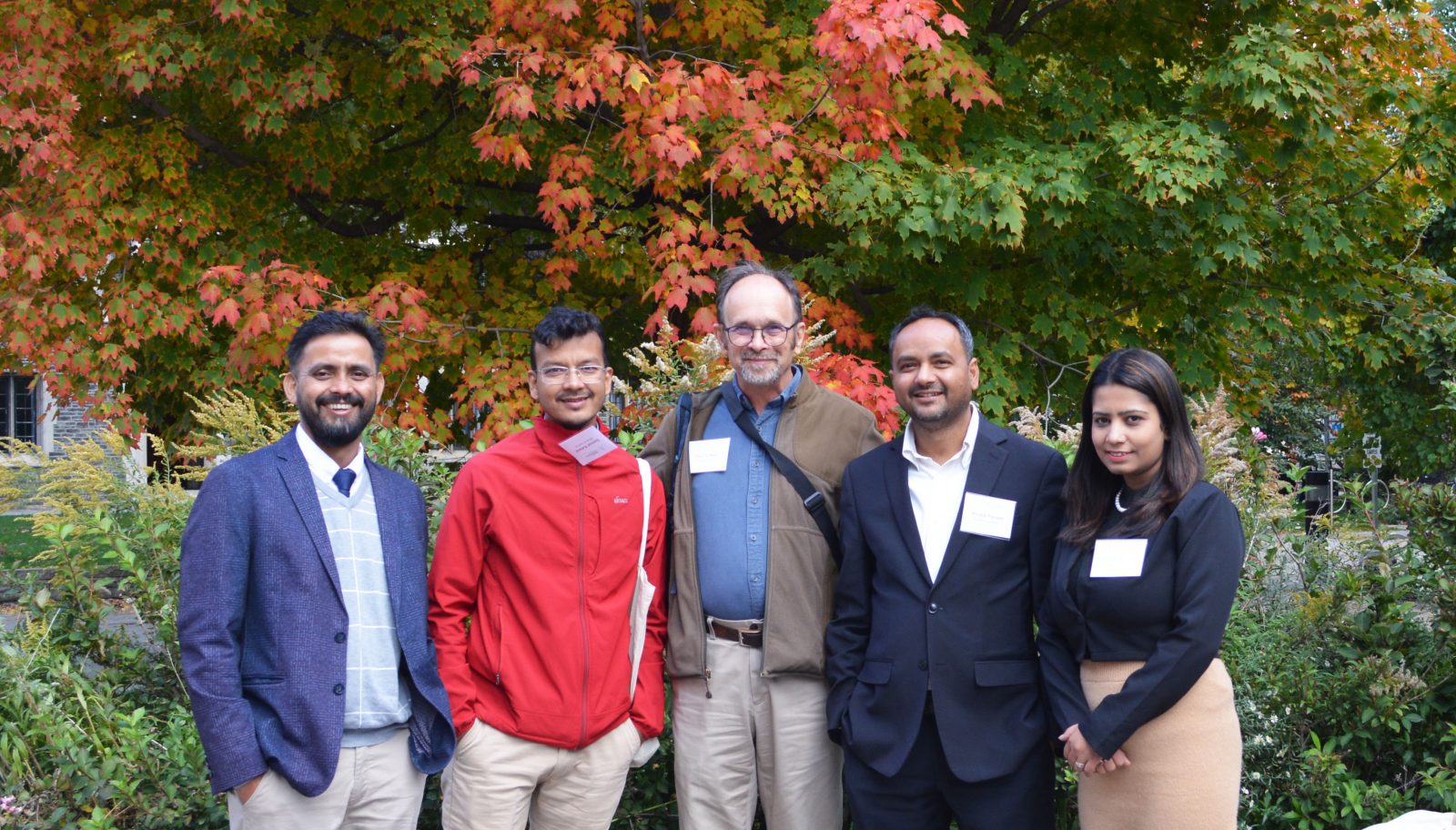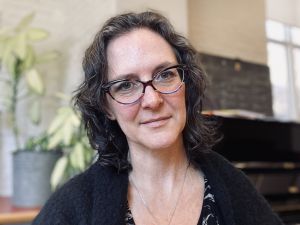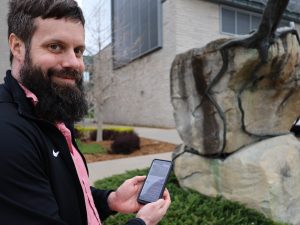 Researchers Bijaya Poudel, Samrat Katwal, Professor Thomas O’Neill (of Brock’s Department of Child and Youth Studies), Pradip Pariyar and Sandhya Acharya will present at a hybrid event Thursday, Oct. 6 from 1 to 2:30 p.m. in CRN 207 and online.
Researchers Bijaya Poudel, Samrat Katwal, Professor Thomas O’Neill (of Brock’s Department of Child and Youth Studies), Pradip Pariyar and Sandhya Acharya will present at a hybrid event Thursday, Oct. 6 from 1 to 2:30 p.m. in CRN 207 and online.An upcoming Brock University event will highlight and explore youth political culture in Nepal.
The Department of Child and Youth Studies invites the Brock community to its colloquium, “Chalphal: The Discussion on Deliberative Democracy in Nepal” Thursday, Oct. 20 at 1 p.m.
During the event, Professor Thomas O’Neill will host his research collaborators Sandhya Acharya, Samrat Katwal, Pradip Pariyar and Bijaya Raj Poudel of Nepal to present the documentary film, Chalphal (The Discussion), and discuss their joint research.
The presentation comes on the heels of the group’s attendance at last week’s Association for Nepal and Himalayan Studies conference in Toronto.
The film covers a series of youth assemblies held in 2018 and 2019 across Nepal, following on the creation of a new constitution in the country in 2015. The youths who assembled talked about the new democracy, regional differences and identities, government structures and more.
O’Neill, who has written about the assemblies in The Hamilton Spectator and more recently in The Conversation, believes there are many benefits to having captured this “action research” on video.
“There’s a lot of laughter in the film, not because they find things funny but because it’s a very tense interaction, and laughter is a way to dispel that,” he says. “I think that’s valuable to talk about, because we have a real fear about approaching each other with different points of view. That’s the kind of political culture discussion that I’m trying to aspire to in the film.”
O’Neill notes that his approach to this project is a long way off from the more colonial model of anthropology in which he first studied Nepal, a country he grew to love after working as a young volunteer teacher in the Himalayas. He also says the project itself evolved to become more inclusive over time.
“Youth don’t have one voice — they’re as diverse as any population would be — so, with these assemblies, we paid a lot of attention to recruiting both men and women, people from different castes and Indigenous people,” he says. “Particularly in the second round of assemblies, the team recruited LGTBQ young people, disabled young people and people with different identities who have been largely absent from the literature in Nepal up until now.”
O’Neill, whose undergraduate degree was in fine arts, recorded the assemblies as both a means of documentation and for translation purposes; however, he soon realized the footage could be made into a film for general audiences as part of his knowledge mobilization efforts for the Social Sciences and Humanities Research Council-funded project.
So he rolled up his sleeves and learned how to use digital editing software, which he admits was quite an upgrade from his time spent splicing and taping 16 mm film stock and also “a lot of fun.”
“In my teaching, I’ve always used films, especially when teaching about the global South, to be able to show students the realities that people face in other parts of the world,” says O’Neill.
Now, as he prepares to retire in 2023, O’Neill sees the film as a resource for others.
“I see the film that I made as a tool to build understanding and help people see that democracy could be done differently, that we can actually talk to people who have different points of view respectfully, even when we vehemently disagree,” he says. “What we’re trying to do is to really get people thinking about other forms of political culture.”
Thursday’s event will have a hybrid format, with those interested in attending welcome to sit in on the discussion in CRN 207 or join online. The documentary can also be viewed in its entirety below or on O’Neill’s website, Nepal Political Youth.









